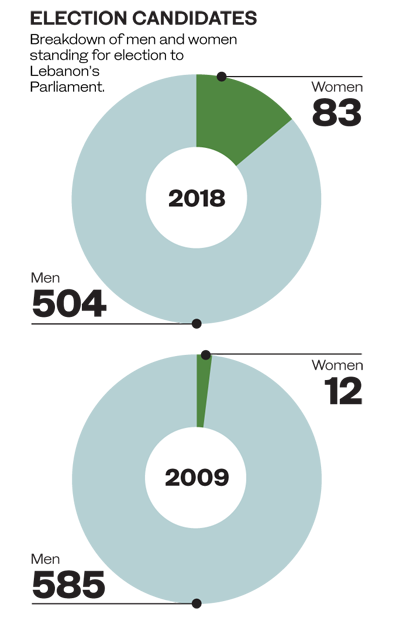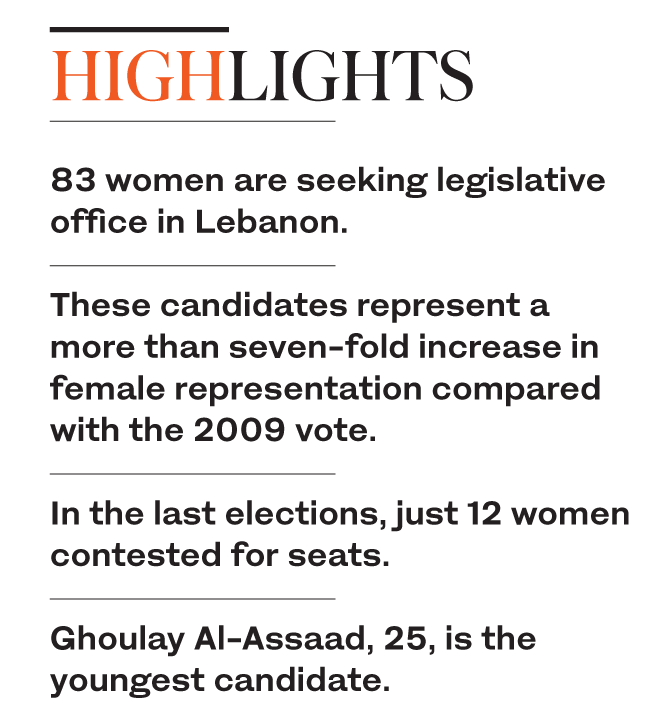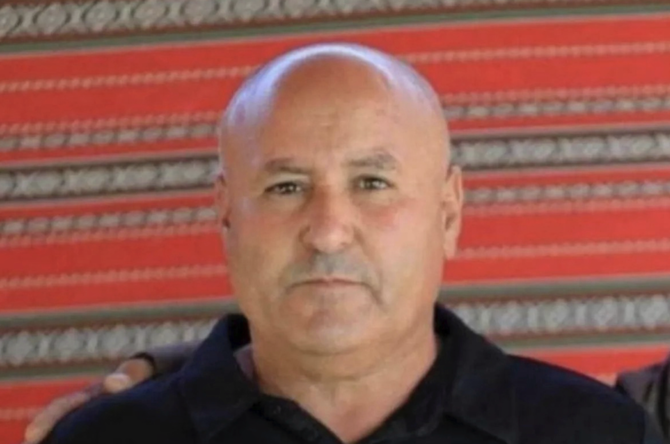BEIRUT: Dozens of Lebanese women are running for the parliamentary elections next Sunday — a notable increase on the last poll, but still just a fraction of those standing.
Nine years ago, when Lebanon held its last election, just 12 women ran for seats compared to almost 600 men. This time, 83 women are in contention and while the increase has been welcomed, candidates told Arab News that more needs to be done to increase the numbers.
 Jessica Azar, a senior news presenter with local channel MTV, is running for the first time.
Jessica Azar, a senior news presenter with local channel MTV, is running for the first time.
The 31-year-old, standing with the Lebanese Forces list in the Metn region, told Arab News that the number of women candidates is still comparatively low.
“I am more than glad to witness women’s engagement in politics and public affairs reaching a new level, however, this is only 11.37 percent of the total number of candidates,” Azar said.
“Lebanese women are facing discrimination under some of the current laws, and only their vote will assure them that change will be made. And change can only be made by voting for people you find worthy of your votes.”
At age 25, Ghoulay Al-Assaad is the youngest candidate in the elections. She is running for the Sunni seat in Akkar.
“We want to support women in all fields, provide education for all young people, provide jobs for them and prevent further migration,” Ghoulay, who holds a BA in International Relations and Diplomatic Sciences from the University of Ankara, told Arab News.
Journalist Viollete Ghazal said that her candidacy on the Greek Orthodox seat in Metn was prompted by her work as a journalist.
“I know the problems of society and know which deals that take place in it. I wasn’t able to change things as a journalist.
 “I have to be within Parliament to take part in legislating and modernizing the laws. Joining the list of the ‘Phalangist’ opposition party was in line with my aspirations,” she said.
“I have to be within Parliament to take part in legislating and modernizing the laws. Joining the list of the ‘Phalangist’ opposition party was in line with my aspirations,” she said.
Zoya Jureidini has a different experience that led her to run for the Greek Orthodox seat in the Chouf-Aley district in Mount Lebanon.
She said that while she chaired an association of the “Enough” campaign, which combats violence against women, she struggled to persuade the government to change laws prejudicial to women.
“There is a dominant macho mentality in Parliament that avoids any modifications that may affect the personal laws in Lebanon, so much so that we now feel as if we are begging for our rights from the Parliament,” she told Arab News.
Rula Al-Jaroudi, a lawyer, is the only candidate on the “Future Is for Beirut” electoral list headed by Prime Minister Saad Hariri.
Jaroudi told Arab News that her entry into public affairs was “to defend human rights through politics,” and that she would fight to amend laws prejudicial to women.


























